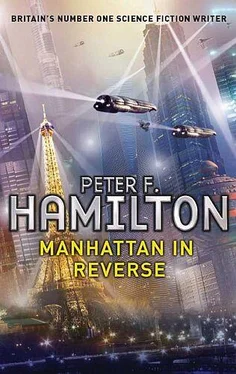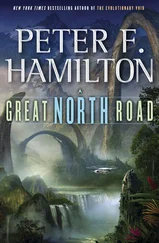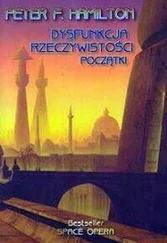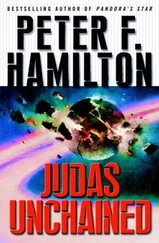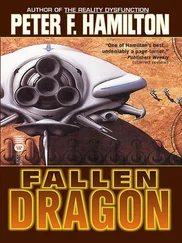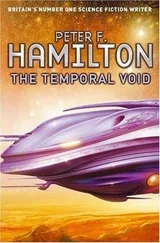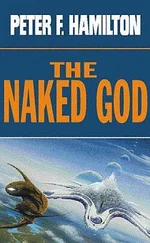Some of us, of course, were intent on going further still. I saw the clearest evidence of that as the Kuranda spiralled up away from Earth. We passed within eight thousand miles of what the planetbound are calling the Wanderers Cluster. Five asteroids in a fifty-thousand-mile orbit, slowly being hollowed out and fitted with habitation chambers. From Earth they appeared simply as bright stars performing a strange slow traverse of the sky. From the Kuranda (with the aid of an on-board video sensor) I could clearly see the huge construction zones on their surface where the fusion engines were being fabricated. If all went well, they would take two hundred years to reach Proxima Centari. Half a lifetime cooped up inside artificial caves, but millions of people had applied to venture with them. I remained undecided if that was a reflection of healthy human dynamism, or a more subtle comment on the state of our society. Progress, if measured by the yardstick of mechanisation, medicine, and electronics, seemed to be accelerating at a rate which even I found perturbing. Too many people were being made redundant as new innovations came along, or AIs supplanted them. In the past that never bothered us — after all who wants to spend four hundred years doing the same thing? But back then it was a slow transition, sliding from occupation to occupation as fancy took you. Now such migrations were becoming forced, and the timescale shorter. There were times I even wondered if my own job was becoming irrelevant.
The Kuranda took three months to get me to Jupiter, powered by low-temperature ion plasma engines, producing a small but steady thrust the whole way. It was one of the first of its class, a long-duration research and explorer ship designed to take our family scientists out as far as Neptune. Two hundred yards long, including the propellant tanks and fusion reactors.
We raced round Jupiter’s pale orange cloudscape, shedding delta-V as Captain Harrison Dominy Raleigh aligned us on a course for Ganymede. Eight hours later when we were coasting up away from the gas giant, I was asked up to the bridge. Up is a relative term on a spaceship which wasn’t accelerating, and the bridge is at the centre of the life-support section. There wasn’t a lot of instrumentation available to the three duty officers, just some fairly sophisticated consoles with holographic windows and an impressive array of switches. The AI actually ran Kuranda , while people simply monitored its performance and that of the primary systems.
Our captain, Harrison Dominy Raleigh, was floating in front of the main sensor console, his right foot velcroed to the decking.
‘Do we have a problem?’ I asked.
‘Not with the ship,’ he said. ‘This is strictly your area.’
‘Oh?’ I anchored myself next to him, trying to comprehend the display graphics. It wasn’t easy, but then I don’t function very well in low-gravity situations. Fluids of every kind migrate to my head, which in my case brings on the most awful headaches. My stomach is definitely not designed to digest floating globules of food. And you really would think that after seventy-five years of people travelling through space, someone would manage to design a decent freefall toilet. On the plus side, I’m not too nauseous during the aerial manoeuvres that replace locomotion, and I am receptive to the anti-wasting drugs developed to counter calcium loss in human bones. It’s a balance which I can readily accept as worthwhile in order to see Jupiter with my own eyes.
The captain pointed to a number of glowing purple spheres in the display, each one tagged by numerical icons. ‘The Caesars have orbited over twenty sensor satellites around Ganymede. They provide a full radar coverage out to eighty thousand miles. We’re also picking up similar emissions from the other major moons here. No doubt their passive scans extend a great deal further.’
‘I see. The relevance being?’
‘Nobody arrives at any of the moons they’ve claimed without them knowing about it. I’d say they’re being very serious about their settlement rights.’
‘We never made our voyage a secret. They have our arrival time down to the same decimal place as our own AI.’
‘Which means the next move is ours. We arrive at Ganymede injection in another twelve hours.’
I looked at those purple points again. We were the first non-Caesar spaceship to make the Jupiter trip. The Caesars sent a major mission of eight ships thirteen years ago; which the whole world watched with admiration right up until Commander Ricardo Savill Caesar set his foot on Ganymede and announced to his massive television audience that he was claiming not only Ganymede but Jupiter and all of its satellites for the Caesar family. It was extraordinary, not to say a complete violation of our entire world’s rationalist ethos. The legal manoeuvring had been going on ever since, as well as negotiations amongst the most senior level of family representatives in an attempt to get the Caesars to repudiate the claim. It was a standing joke for satirical show comedians, who got a laugh every time about excessive greed and routines about one person one moon. But in all that time, the Caesars had never moved from their position that Jupiter and its natural satellites now belonged to them. What they had never explained in those thirteen years is why they wanted it.
And now here we were. My brief wasn’t to challenge or antagonize them, but to establish some precedents. ‘I want you to open a communication link to their primary settlement,’ I told the captain. ‘Use standard orbital flight control protocols, and inform them of our intended injection point. Then ask them if there is any problem with that. Treat it as an absolutely normal everyday occurrence… we’re just one more spaceship arriving in orbit. If they ask what we’re doing here; we’re a scientific mission and I would like to discuss a schedule of geophysical investigations with their Mayor. In person.’
Harrison Dominy Raleigh gave me an uncomfortable grimace. ‘You’re sure you wouldn’t like to talk to them now?’
‘Definitely not. Achieving a successful Ganymede orbit is not something important enough to warrant attention from a family representative.’
‘Right then.’ He flipped his headset mike down, and instructed the AI on establishing a communication link.
It wasn’t difficult. The Caesars were obviously treading as carefully as we were. Once the Kuranda was in orbit, the captain requested spaceport clearance for our ground-to-orbit shuttle, which was granted without comment.
The ride down was an uneventful ninety minutes, if you were to discount the view from the small, heavily-shielded ports. Jupiter at a quarter crescent hung in the sky above Ganymede. We sank down to a surface of fawn-coloured ice pocked by white impact craters and great sulci , clusters of long grooves slicing through the grubby crust, creating broad river-like groupings of corrugations. For some reason I thought the landscape more quiet and dignified than that of Earth’s moon. I suppose the icescape’s palette of dim pastel colours helped create the impression, but there was definitely an ancient solemnity to this small world.
New Milan was a couple of degrees north of the equator, in an area of flat ice pitted with small newish craters. An undisciplined sprawl of emerald and white lights covering nearly five square miles. In thirteen years the Caesars had built themselves quite a substantial community here. All the buildings were freestanding igloos whose base and lower sections were constructed from some pale yellow silicate concrete, while the top third was a transparent dome. As the shuttle descended towards the landing field I began to realize why the lights I could see were predominately green. The smallest igloo was fifty yards in diameter, with the larger ones reaching over two hundred yards; they all had gardens at their centre illuminated by powerful lights underneath the glass.
Читать дальше
